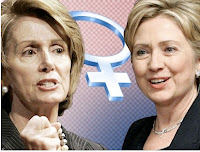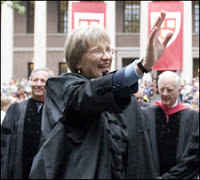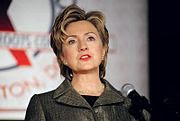 Due to my obsessive Hillary fascination, I can’t help but comment on ABC’s trumped up catfight story: Pelosi v. Hillary. Since Jessica at feministing said it best, I’m just going to send you to her. What’s next? Hillary and Nancy get naked and fling mud? Jeesh.
Due to my obsessive Hillary fascination, I can’t help but comment on ABC’s trumped up catfight story: Pelosi v. Hillary. Since Jessica at feministing said it best, I’m just going to send you to her. What’s next? Hillary and Nancy get naked and fling mud? Jeesh.
Meanwhile, check out Reuter’s mini-survey of what some feminist thinkers think about the possibility of electing Hillary Clinton to the White House. (Stop the presses: Feminists, it turns out, aren’t interested in choosing a candidate based on his or her gender.) And note Carol Jenkin’s take on the male-dominated media’s roll in it all. After more than 20 debates, in which only six women have participated as moderators and questioners compared to more than 30 men, Carol asks, “Where is the slate of newswomen who consistently get to ask the big, important questions? How can we not think of what we’re witnessing as anything but the traditional all-boys club?†Hmm…
Finally, if you’re looking for a satisfying chuckle, do check out Ann and Jessica’s feisty letter to male politicians to please stop playing the male gender card, here. To wit: “It’s just wrong to expect men to vote for you because you smell like Aqua Velva and cigar smoke, because you own a huge ranch and the Western wear to prove it, because you think America needs a “commanding Daddy” to torture the bad guys.” Hehe.









